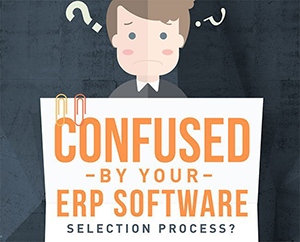Most companies that implement SAP Business One are small to medium sized businesses. These companies typically do not have an internal IT department and have limited internal ERP / technical skills to implement an ERP solution. As a result it is important to understand the roles and responsibilities during an implementation of SAP Business One. These roles should be considered both from the customer and the SAP Business One partner perspective. This blog focuses on the roles and responsibilities of the SAP Business One implementation partner.
Roles and responsibilities of your SAP partner.

There is no doubt that implementation partner responsibilities will change from one implementation to the next. The common denominator always is that the SAP Business One partner should be guiding the customer through each stage of the implementation methodology. Offering guidance, expertise and domain knowledge is critical. Let’s look at the SAP Business One Partner responsibilities in more detail:
Project management – Your SAP Business One Project Manager will need to take responsibility for the project plan, scheduling and organisation of project resource, management of project meetings and associated documentation. The project manager will have overall responsibility for project delivery.
Implementation methodology – Your SAP Business One implementation partner will have responsibility for ensuring that the agreed implementation methodology is followed.
User training – Transfer of knowledge is critical. Your SAP Business One partner will need to provide user training on multiple levels – super user training, technical training, report writer training, functional training. The trainer should be able to analyse different user requirements for training and respond accordingly to make sure users are well trained and confident of their ability to use SAP Business One.
Forms – A fairly basic requirement to set up forms for purchase orders, invoices and remittances. Get your SAP Business One partner to set up your forms and at the same time to train your super user in forms development. These forms are usually developed in SAP Crystal. Training your super user will save time and money when you want forms modified for future use.
Data conversion – This is an often under specified element of the SAP Business One implementation. Data conversion requires substantial input from the customer – to provide the data out of legacy systems, to check data and assist with data conversion. After all, nobody knows your data better than you do. Having said this, there is still a substantial role to be played for the SAP Business One implementation partner who should be providing technical expertise to coach you through data conversion and testing.
Technical skillset – Most SAP Business One customers do not have access to internal IT department skill set. As such the SAP Business One partner has to take on the role of internal IT person for the co-ordination of hardware and infrastructure requirements. The SAP Business One partner will very often have responsibility for liaising with the customer’s external IT contractor.
Reporting – SAP Business One offers lots of standard reporting and SAP HANA offers the ability for customers to build their own reporting. Don’t underestimate the requirement to have your SAP Business One partner tailor some reports specific to your requirements. Even with hundreds of standard reports available, most implementations will require some level of report customization.
Functional consultancy – Your SAP Business One implementation partner should be functional experts in all aspects of SAP Business One functionality – finance, distribution, CRM, manufacturing, mobility, reporting and more. It’s the role of the SAP Business One implementation partner to help you navigate your way through these functional aspects of SAP Business One and to configure the system to your requirements.
Business analyst – A good SAP Business One consultant will work as a business analyst to help you define your requirements and get the most out of SAP Business One.
System configuration – SAP Business One is a highly configurable solution. Your SAP Business One partner will have a level of responsibility for system configuration – based on your requirements and the scope of works.
In summary, discuss the project roles and responsibilities with your SAP Business One implementation partner. These roles can vary based on your internal level of expertise and budget. Although we have focused this blog on the SAP Business One partner responsibilities during implementation let’s not forget that there are also multiple customer responsibilities. You own this project and the outcomes together with your implementation partner.








Leave A Comment